33 start with M start with M
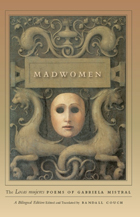
From disquieting humor to balladlike lyricism to folkloric wisdom, these pieces enact a tragic sense of life, depicting “madwomen” who are anything but mad. Strong and intensely human, Mistral’s poetic women confront impossible situations to which no sane response exists. This groundbreaking collection presents poems from Mistral’s final published volume as well as new editions of posthumous work, featuring the first English-language appearance of many essential poems. Madwomen promises to reveal a profound poet to a new generation of Anglophone readers while reacquainting Spanish readers with a stranger, more complicated “madwoman” than most have ever known.
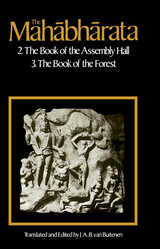

Mock trial—Roman style.
The Major Declamations stand out for their unique contribution to our understanding of the final stage in Greco-Roman rhetorical training. These exercises, in which students learned how to compose and deliver speeches on behalf of either the prosecution or the defense at imaginary trials, demonstrate how standard themes, recurring situations and arguments, and technical rules were to be handled by the aspiring orator. And what is more, they lay bare the mistakes that students often made in this process.
Declamation was practiced in the ancient world from as early as the fifth century BC, but most of its vast tradition has disappeared. The surviving material is mainly in Greek, from the second century AD onward. In Latin the nineteen declamations in the present anthology are by far the most important evidence. In antiquity they were attributed to Quintilian, but they are now thought to be the work of several authors and to date from around AD 100 to the mid- or late third century.
A wide variety of fascinating ethical, social, and legal details animates the fictional world conjured up by these oratorical exercises, and although the themes of declamation can be unrealistic and even absurd (often reminiscent of ancient novel and tragedy), they seem to provide a safe space in which a student could confront a range of complex issues, so as to attain both the technical knowledge necessary to speak persuasively and the soft skills needed to manage the challenges of adult life under the Roman empire.

Mock trial—Roman style.
The Major Declamations stand out for their unique contribution to our understanding of the final stage in Greco-Roman rhetorical training. These exercises, in which students learned how to compose and deliver speeches on behalf of either the prosecution or the defense at imaginary trials, demonstrate how standard themes, recurring situations and arguments, and technical rules were to be handled by the aspiring orator. And what is more, they lay bare the mistakes that students often made in this process.
Declamation was practiced in the ancient world from as early as the fifth century BC, but most of its vast tradition has disappeared. The surviving material is mainly in Greek, from the second century AD onward. In Latin the nineteen declamations in the present anthology are by far the most important evidence. In antiquity they were attributed to Quintilian, but they are now thought to be the work of several authors and to date from around AD 100 to the mid- or late third century.
A wide variety of fascinating ethical, social, and legal details animates the fictional world conjured up by these oratorical exercises, and although the themes of declamation can be unrealistic and even absurd (often reminiscent of ancient novel and tragedy), they seem to provide a safe space in which a student could confront a range of complex issues, so as to attain both the technical knowledge necessary to speak persuasively and the soft skills needed to manage the challenges of adult life under the Roman empire.

Mock trial—Roman style.
The Major Declamations stand out for their unique contribution to our understanding of the final stage in Greco-Roman rhetorical training. These exercises, in which students learned how to compose and deliver speeches on behalf of either the prosecution or the defense at imaginary trials, demonstrate how standard themes, recurring situations and arguments, and technical rules were to be handled by the aspiring orator. And what is more, they lay bare the mistakes that students often made in this process.
Declamation was practiced in the ancient world from as early as the fifth century BC, but most of its vast tradition has disappeared. The surviving material is mainly in Greek, from the second century AD onward. In Latin the nineteen declamations in the present anthology are by far the most important evidence. In antiquity they were attributed to Quintilian, but they are now thought to be the work of several authors and to date from around AD 100 to the mid- or late third century.
A wide variety of fascinating ethical, social, and legal details animates the fictional world conjured up by these oratorical exercises, and although the themes of declamation can be unrealistic and even absurd (often reminiscent of ancient novel and tragedy), they seem to provide a safe space in which a student could confront a range of complex issues, so as to attain both the technical knowledge necessary to speak persuasively and the soft skills needed to manage the challenges of adult life under the Roman empire.
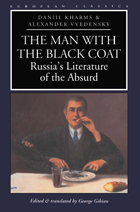
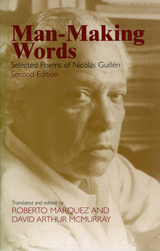
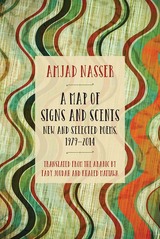

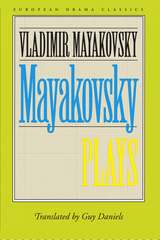
Mayakovsky: Plays includes Mystery Bouffe, a mock medieval mystery written in 1918 to celebrate the first anniversary of the Revolution; The Bathhouse, a sharp attack on Soviet bureaucracy subtitled "a drama of circus and fireworks"; and The Bedbug, in which a worker with bourgeois pretensions is frozen and resurrected fifty years later, when the world has become a material paradise. The collection also includes Mayakovsky's more personal first play, Vladimir Mayakovsky: A Tragedy.

Exemplary wisdom from ancient Rome.
Valerius Maximus compiled his handbook of notable deeds and sayings during the reign of Tiberius (AD 14–37). The collection was admired in antiquity and has recently been attracting renewed scholarly attention. Yet to date there has been no modern English translation of Memorable Doings and Sayings. This work is now added to the Loeb Classical Library, in two volumes, a freshly edited Latin text facing D. R. Shackleton Bailey’s pleasing and authoritative translation.
Valerius arranges his instructive examples in short chapters, each focused on a particular virtue, vice, religious practice, or traditional custom—including Omens, Dreams, Anger, Cruelty, Bravery, Fidelity, Gratitude, Friendship, Parental Love. The moral undercurrent of this collection is readily apparent. But Valerius tells us that the book’s purpose is simply practical: he decided to select worthwhile material from famous writers so that people looking for illustrative examples might be spared the trouble of research. Whatever the author’s intention, his book is an interesting source of information on Roman attitudes toward religion and moral values in the first century.

Exemplary wisdom from ancient Rome.
Valerius Maximus compiled his handbook of notable deeds and sayings during the reign of Tiberius (AD 14–37). The collection was admired in antiquity and has recently been attracting renewed scholarly attention. Yet to date there has been no modern English translation of Memorable Doings and Sayings. This work is now added to the Loeb Classical Library, in two volumes, a freshly edited Latin text facing D. R. Shackleton Bailey’s pleasing and authoritative translation.
Valerius arranges his instructive examples in short chapters, each focused on a particular virtue, vice, religious practice, or traditional custom—including Omens, Dreams, Anger, Cruelty, Bravery, Fidelity, Gratitude, Friendship, Parental Love. The moral undercurrent of this collection is readily apparent. But Valerius tells us that the book’s purpose is simply practical: he decided to select worthwhile material from famous writers so that people looking for illustrative examples might be spared the trouble of research. Whatever the author’s intention, his book is an interesting source of information on Roman attitudes toward religion and moral values in the first century.

The master of New Comedy.
Menander (?344/3–292/1 BC) of Athens, the leading playwright of the New Comedy, wrote more than 100 plays. Many of his comedies were adapted by Roman dramatists. By the middle ages, however, his works were lost. Then, at the end of the nineteenth century, papyrus texts, preserved from antiquity by the dry heat of Egypt, began to be discovered. These have yielded so far one play virtually complete (Dyskolos), large continuous portions of four more (Aspis, Epitrepontes, Perikeiromene, Samia), and sizable chunks of many others. Menander remains a paradox: artificial plots based on unlikely but conventional coincidences, enlivened by individualized characters, realistic situations, and at times deeply moving dialogue.
Volume I of Geoffrey Arnott’s three-volume edition of Menander contains six plays, including Dyskolos (The Peevish Fellow), which won first prize in Athens in 317 BC, and Dis Exapaton (Twice a Swindler), the original of Plautus’ Two Bacchises. Ten plays are in Volume II, among them the recently published fragments of Misoumenos (The Man She Hated), which sympathetically presents the flawed relationship of a soldier and a captive girl; and the surviving half of Perikeiromene (The Girl with Her Hair Cut Short), a comedy of mistaken identity and lovers’ quarrel. Volume III begins with Samia (The Woman from Samos), which has come down to us nearly complete. Here too are the very substantial extant portions of Sikyonioi (The Sicyonians) and Phasma (The Apparition), as well as Synaristosai (Women Lunching Together), on which Plautus’ Cistellaria was based.

The master of New Comedy.
Menander (?344/3–292/1 BC) of Athens, the leading playwright of the New Comedy, wrote more than 100 plays. Many of his comedies were adapted by Roman dramatists. By the middle ages, however, his works were lost. Then, at the end of the nineteenth century, papyrus texts, preserved from antiquity by the dry heat of Egypt, began to be discovered. These have yielded so far one play virtually complete (Dyskolos), large continuous portions of four more (Aspis, Epitrepontes, Perikeiromene, Samia), and sizable chunks of many others. Menander remains a paradox: artificial plots based on unlikely but conventional coincidences, enlivened by individualized characters, realistic situations, and at times deeply moving dialogue.
Volume I of Geoffrey Arnott’s three-volume edition of Menander contains six plays, including Dyskolos (The Peevish Fellow), which won first prize in Athens in 317 BC, and Dis Exapaton (Twice a Swindler), the original of Plautus’ Two Bacchises. Ten plays are in Volume II, among them the recently published fragments of Misoumenos (The Man She Hated), which sympathetically presents the flawed relationship of a soldier and a captive girl; and the surviving half of Perikeiromene (The Girl with Her Hair Cut Short), a comedy of mistaken identity and lovers’ quarrel. Volume III begins with Samia (The Woman from Samos), which has come down to us nearly complete. Here too are the very substantial extant portions of Sikyonioi (The Sicyonians) and Phasma (The Apparition), as well as Synaristosai (Women Lunching Together), on which Plautus’ Cistellaria was based.

The master of New Comedy.
Menander (?344/3–292/1 BC) of Athens, the leading playwright of the New Comedy, wrote more than 100 plays. Many of his comedies were adapted by Roman dramatists. By the middle ages, however, his works were lost. Then, at the end of the nineteenth century, papyrus texts, preserved from antiquity by the dry heat of Egypt, began to be discovered. These have yielded so far one play virtually complete (Dyskolos), large continuous portions of four more (Aspis, Epitrepontes, Perikeiromene, Samia), and sizable chunks of many others. Menander remains a paradox: artificial plots based on unlikely but conventional coincidences, enlivened by individualized characters, realistic situations, and at times deeply moving dialogue.
Volume I of Geoffrey Arnott’s three-volume edition of Menander contains six plays, including Dyskolos (The Peevish Fellow), which won first prize in Athens in 317 BC, and Dis Exapaton (Twice a Swindler), the original of Plautus’ Two Bacchises. Ten plays are in Volume II, among them the recently published fragments of Misoumenos (The Man She Hated), which sympathetically presents the flawed relationship of a soldier and a captive girl; and the surviving half of Perikeiromene (The Girl with Her Hair Cut Short), a comedy of mistaken identity and lovers’ quarrel. Volume III begins with Samia (The Woman from Samos), which has come down to us nearly complete. Here too are the very substantial extant portions of Sikyonioi (The Sicyonians) and Phasma (The Apparition), as well as Synaristosai (Women Lunching Together), on which Plautus’ Cistellaria was based.

A beguiling tale of mistaken transformation.
In the Metamorphoses of Apuleius, also known as The Golden Ass, we have the only Latin novel which survives entire. It is truly enchanting: a delightful romance combining realism and magic.
The hero, Lucius, eager to experience the sensations of a bird, resorts to witchcraft but by an unfortunate pharmaceutical error finds himself transformed into an ass. He knows he can revert to his own body by eating rose-petals, but these prove singularly elusive; and the bulk of the work describes his adventures as an animal. He also retails many stories that he overheard, the most charming being that of Cupid and Psyche (beginning, in true fairy-tale fashion, ‘Erant in quadam civitate rex et regina’). Some of the stories are as indecent as they are witty, and two in the ninth book were deemed by Boccaccio worthy of inclusion in the Decameron. At last the goddess Isis takes pity on Lucius. In a surprising denouement, he is restored to human shape and, now spiritually regenerated, is initiated into her mysteries. The author’s baroque Latin style nicely matches his fantastic narrative and is guaranteed to hold a reader's attention from beginning to end.
The Loeb Classical Library edition of Apuleius is in three volumes.

A beguiling tale of mistaken transformation.
In the Metamorphoses of Apuleius, also known as The Golden Ass, we have the only Latin novel which survives entire. It is truly enchanting: a delightful romance combining realism and magic.
The hero, Lucius, eager to experience the sensations of a bird, resorts to witchcraft but by an unfortunate pharmaceutical error finds himself transformed into an ass. He knows he can revert to his own body by eating rose-petals, but these prove singularly elusive; and the bulk of the work describes his adventures as an animal. He also retails many stories that he overheard, the most charming being that of Cupid and Psyche (beginning, in true fairy-tale fashion, ‘Erant in quadam civitate rex et regina’). Some of the stories are as indecent as they are witty, and two in the ninth book were deemed by Boccaccio worthy of inclusion in the Decameron. At last the goddess Isis takes pity on Lucius. In a surprising denouement, he is restored to human shape and, now spiritually regenerated, is initiated into her mysteries. The author’s baroque Latin style nicely matches his fantastic narrative and is guaranteed to hold a reader's attention from beginning to end.
The Loeb Classical Library edition of Apuleius is in three volumes.
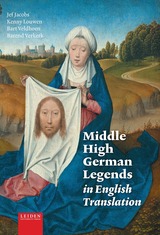
This volume collects five medieval German legends—the story of Veronica, Vespasian, Theophilus, Mary Magdalene, and the True Cross—in both the Middle High German original and modern English translation alongside unique guides to the relevant Germanic research and the principal themes of each text.
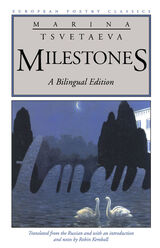
Milestones lays out a sensual feast of moods, themes, styles, and rhythms—all the ingredients that would in time reveal Tsvetaeva as one of the most daring and original poets of her time.

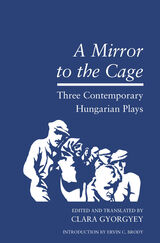

The premier scholar-poet of the Hellenistic age.
Callimachus (ca. 303–ca. 235 BC), a proud and well-born native of Cyrene in Libya, came as a young man to the court of the Ptolemies at Alexandria, where he composed poetry for the royal family; helped establish the Library and Museum as a world center of literature, science, and scholarship; and wrote an estimated 800 volumes of poetry and prose on an astounding variety of subjects, including the Pinakes, a descriptive bibliography of the Library’s holdings in 120 volumes. Callimachus’ vast learning richly informs his poetry, which ranges broadly and reworks the language and generic properties of his predecessors in inventive, refined, and expressive ways. The “Callimachean” style, combining learning, elegance, and innovation and prizing brevity, clarity, lightness, and charm, served as an important model for later poets, not least at Rome for Catullus, Virgil, Horace, Ovid, and the elegists, among others.
This edition, which replaces the earlier Loeb editions by A. W. Mair (1921) and C. A. Trypanis (1954, 1958), presents all that currently survives of and about Callimachus and his works, including the ancient commentaries (Diegeseis) and scholia. Volume I contains Aetia, Iambi, and lyric poems; Volume II Hecale, Hymns, and Epigrams; and Volume III miscellaneous epics and elegies, other fragments, and testimonia, together with concordances and a general index. The Greek text is based mainly on Pfeiffer’s but enriched by subsequently published papyri and the judgment of later editors, and its notes and annotation are fully informed by current scholarship.
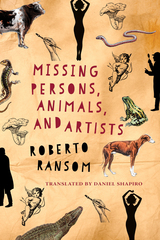
Missing Persons, Animals, and Artists is the follow-up to Ransom’s highly acclaimed A Tale of Two Lions, praised by Ignacio Padilla as “the best Mexican literary work I have read in recent years. . . . [It] heralds a pen capable of that rarest of privileges in our letters: attaining the comic and profoundly human through a perfect simplicity.” This collection of short stories has been translated with great care by Daniel Shapiro.
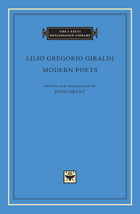
Born in Ferrara, Lilio Gregorio Giraldi (1479–1552) received an excellent classical education at the world-famous humanist schools of his native city. On his various travels in search of a patron, he visited Naples, frequenting the Academy there; Mirandola, where he entered the service of Gianfrancesco Pico; Milan, where he studied Greek under Demetrius Chalcondyles; and Rome, where he enjoyed the munificence of Pope Leo X. Following the sack of Rome in 1527, Giraldi eventually made his way back to Ferrara, where he spent the last years of his life.
Giraldi was the author of many works on literary history, mythology, and antiquities. Among the most famous are his dialogues, translated here into English for the first time. Modeled on Cicero’s Brutus, the work discusses hundreds of contemporary neo-Latin and vernacular poets, giving a panoramic view of European poetry in the late fifteenth and early sixteenth century from Great Britain to Greece, but concentrating above all on Italy.
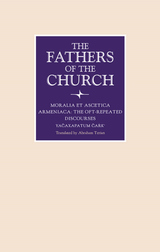
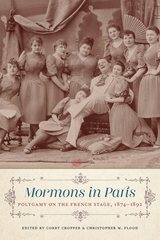
In the late nineteenth century, numerous French plays, novels, cartoons, and works of art focused on Mormons. Unlike American authors who portrayed Mormons as malevolent “others,” however, French dramatists used Mormonism to point out hypocrisy in their own culture. Aren't Mormon women, because of their numbers in a household, more liberated than French women who can't divorce? What is polygamy but another name for multiple mistresses? This new critical edition presents translations of four musical comedies staged or published in France in the late 1800s: Mormons in Paris (1874), Berthelier Meets the Mormons (1875), Japheth’s Twelve Wives (1890), and Stephana’s Jewel (1892). Each is accompanied by a short contextualizing introduction with details about the music, playwrights, and staging. Humorous and largely unknown, these plays use Mormonism to explore and mock changing French mentalities during the Third Republic, lampooning shifting attitudes and evolving laws about marriage, divorce, and gender roles.
Published by Bucknell University Press. Distributed worldwide by Rutgers University Press.
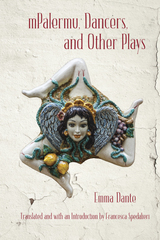
This exquisite first English translation of Emma Dante’s work enables English-speaking readers, theatre scholars, and directors alike to encounter character-driven “civic theatre” with its portraits of individuals existing at the fringes of Italy. Ultimately, it allows us to “listen” to those who are not given a voice anywhere else.
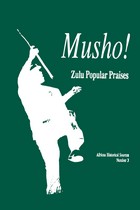

My Heart Became a Bomb is the first collection of poetry by Syrian-Palestinian poet Ramy al-Asheq to be translated into English. Poignant and raw, these poems take the reader along a path of forced emigration from Bashar al-Assad’s prisons in Syria to Amsterdam to Auschwitz to Berlin, Germany, where Al-Asheq is now creating a new home. By turns melancholy and reflective, celebratory and hopeful, Al-Asheq’s newly translated poems offer the English-reading audience a contemporary perspective on the experience of exile in a world facing the phenomeno of mass migration, whether for political or environmental reasons. The translations are the result of a long collaboration between Al-Asheq and Thompson (who also edited this collection). Raising questions about the nature of love, identity, and the role of poetry in the face of constant flux and great uncertainty, My Heart Became a Bomb introduces an important new voice to the world of contemporary poetry.

Boris Pasternak is best known in the West for his epic novel Doctor Zhivago, whereas in Russia he is most celebrated as a poet. The two poetry collections offered here in translation are chronological and thematic bookends, and they capture Pasternak’s abiding and powerful vision of life: his sense of its beauty and terror, its precariousness for the individual, and its persistence in time—that vitality of being with which he is on familiar and familial terms.
In the early work My Sister Life, which commemorates the year 1917, Pasternak, then in his late twenties, found his poetic voice. The book would go on to become one of the most influential collections of Russian poetry of the twentieth century. “The Poems of Yury Zhivago” are a part of the poet’s famous novel, Dr. Zhivago, whose title might be rendered in English as “Doctor Life.” These later lyrics are a kind of summing up that reflect, from the perspective of age and approaching death, upon the accumulated experience of a contemplative life amid turbulent and terrifying times.
Falen’s fresh new translations of these poems capture their expression of the beauty and the joy, the terror and the pain, of what it is to be alive . . . and to die.

Devour it the moment it is fresh, before the dust settles upon it.
Its place is the warm climate of the heart; in this world it dies of cold.
Like a fish it quivered for an instant on dry land, another moment and you see it is cold.
Even if you eat it imagining it is fresh, it is necessary to conjure up many images.
What you drink is really your own imagination; it is no old tale, my good man.
“Rumi is one of the world’s greatest lyrical poets in any language—as well as probably the most accessible and approachable representative of Islamic civilization for Western students.”—James W. Morris, Oberlin College
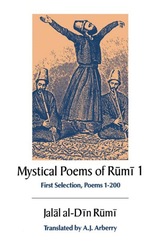
"An excellent introduction to Rumi, the greatest mystical poet of Islam. . . . Rumi's scope, like that of all great poets, is universal—reaching from sensuous luxuriance to the driest irony."—Sherman Goldman, East-West Journal
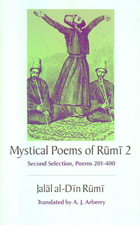
Rumi, who wrote and preached in Persia during the thirteenth century, is one of history’s most celebrated mystics. His vast body of poetry includes a lengthy epic of religious mysticism, the Mathnavi, and more than three thousand lyrics and odes. A. J. Arberry, who selected four hundred of the lyrics for translation, calls Rumi "one of the world's greatest poets. In profundity of thought, inventiveness of image, and triumphant mastery of language, he stands out as the supreme genius of Islamic mysticism." Arberry’s authoritative translation is one of the few done directly from the original Persian.
A. J. Arberry (1905-69) was professor of Arabic at Cambridge University.
READERS
Browse our collection.
PUBLISHERS
See BiblioVault's publisher services.
STUDENT SERVICES
Files for college accessibility offices.
UChicago Accessibility Resources
home | accessibility | search | about | contact us
BiblioVault ® 2001 - 2024
The University of Chicago Press









